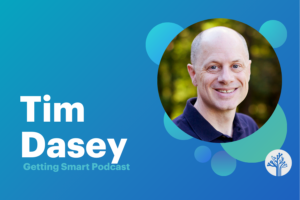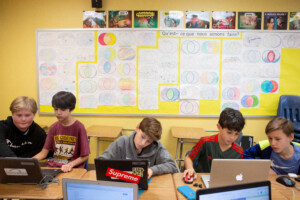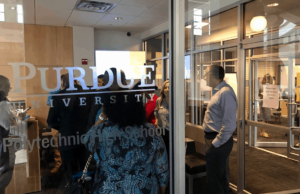Adaptive Leader Istation Joins AI-Powered Reading Tutor Amira Learning
Key Points
-
For Amira, Istation brings a big sticky national network of school partners with enough runway to super charge the app with gen AI features. They also get a K-8 math platform.

Founded by Dick Collins in 1998 in Dallas, Istation rode the 15-year blended learning wave to become a leader in second-generation edtech by providing personalized and adaptive learning in K-8 reading and math.
Founded by Mark Angel in 2018, Amira Learning was the first intelligent reading assistant using predictive AI to provide personalized tutoring to primary school students. Results from the first three years were impressive gains in fluency and automaticity
At the ASU-GSV Air Show, Angel announced Amira 2.0 with the power of generative AI to enable voice interactions and comprehension conversations and improve tutoring judgments and interventions. Angel calls it “third-generation edtech” meaning it is voice-enabled, evidence-powered, immersive, self-improving, conversational, and individualized. The new version of Amira brings a stronger emphasis on comprehension and works up to fifth grade. It helps to understand and define reading comprehension difficulties.
Today, the two companies announced a merger yielding a combined 15% market share and serving over 1,800 school districts. Amira’s impact-proven AI will complement the Istation product, which will remain fully operational and independent of Amira.
Amira’s Large Language Model, benefiting from more than 10 billion spoken words, is well-versed in an extensive range of accents and dialects. It will be paired with Istation’s extensive content library of video lessons for students and lesson plans for teachers to provide leading-edge gamified content.
“Amira Learning has the most sophisticated speech recognition for elementary students in the world, ahead of Amazon, Google and other giants,” said Dick Collins, CEO of Istation, who will transition into a new role as Co-Chairman of the Board.
Amira Learning has raised more than $40M from investors, including Owl Ventures, Authentic Ventures, Vertical Venture Partners, Houghton Mifflin Harcourt, Outcomes Collective, Google Assistant Fund, Amazon Alexa Fund, ReThink Education, and GSV Acceleration.
Discussion & Conclusions
Second-generation edtech brought the promise of personalized and adaptive learning experiences. When combined in blended learning initiative with improved access (ie broadband and devices) and professional learning, it produced moderate gains in standardized measures of grade level achievement. For example, Houston’s iconic PowerUp initiative helped make it what many considered the best urban district (listen to a podcast with superintendent Terry Grier).
When Amira launched in 2018, nearly every school was wired with near 1:1 access. Most American elementary students spent some time each week in a second-gen edtech app including iReady, Istation, DreamBox, Achieve3000. However, results were mixed (at least in standardized measures of grade-level proficiency in reading and math) as a result of chaotic deployments and uneven use patterns. (See our recent publication Unfulfilled Promise for an extended discussion on the last forty years of edtech.)
With the promise of full personalization, conversational interface, and immersive experiences, the introduction of generative AI in 2020 launched a two-year explosion in venture investment in AI startups and the beginning of the end of second-generation edtech.
In 2023, the edtech venture market collapsed and growth capital dried up. Schools lost enrollment and ESSER funds and hit a pause on new purchases and renewals (especially after districts figured out they were using an average of 2,591 ed tech tools). For companies like Istation, the edtech winter made reinvestment challenging and merging with an AI-capable partner more attractive.
For Amira, Istation brings a big sticky national network of school partners with enough runway to supercharge the app with gen AI features. They also get a K-8 math platform. The combined entity will increasingly compete with AI tutors like Khanmigo, Flexi from CK12, Microsoft Reading Coach, and edu-tuned LLMs
Given new AI-powered competition and weak access to venture capital, edtech M&A activity is trending up. We’ll see more deals like this where third-generation firms acquire second-generation for scale. We’ll see second-generation firms seeking rejuvenation by acquiring third-generation firms (like Imagine Learning acquiring CueThink).
Stay tuned, we’ll see more AI-induced combinations in the second half of the year (and most of them won’t pan out). Amira’s agility with AI, their commitment to the science of learning, and their sterling cap table make them a partner to bet on.








0 Comments
Leave a Comment
Your email address will not be published. All fields are required.